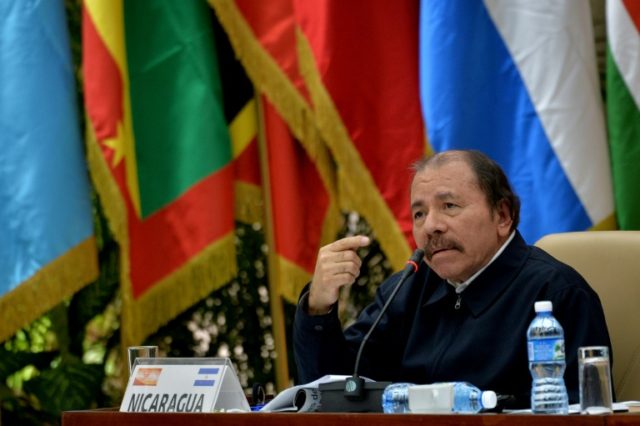Managua (AFP) – Nicaraguan authorities on Friday postponed the hearings of seven opposition leaders accused of terrorism, after President Daniel Ortega agreed to resume negotiations to resolve the country’s political crisis.
Among the postponed hearings was that of student leader Amaya Coppens, 24, who was arrested in September and accused of terrorism and other offenses, her father Frederic Coppens told AFP.
He said her first hearing had been pushed back from Friday to March 5 at the request of the attorney general’s office.
Four fellow student leaders also had their hearings postponed, their lawyer confirmed, alongside two other prominent activists.
Ortega has agreed to resume negotiations on Wednesday next week. Talks that started in May broke down in June as the president refused to step down and bring forward presidential elections.
Those talks came about after protests in April, initially staged in opposition to a now-scrapped pension reform, that morphed into general anger at Ortega’s regime.
A brutal crackdown by Ortega’s security forces left 325 people dead and more than 750 arrested and accused of terrorism by the time the protests ended in October.
Julio Montenegro, a lawyer for several of the student leaders, said the families of his clients were hoping the new talks would lead to the release of detained protesters, a key demand of the Catholic church and civil society groups.
Nicaragua is struggling with an economic crisis and a $315 million deficit. GDP shrank four percent last year and some economists say it could contract 11 percent in 2019.
The opposition accuses former guerrilla leader Ortega, in power since 2007, of establishing a corrupt dictatorship with his wife and vice president, Rosario Murillo.
Ortega’s handling of the protests drew international condemnation and sanctions from the United States.
On Monday, two opposition leaders who took part in last year’s protests were handed sentences of more than 200 years after being convicted of terrorism and other offences.

COMMENTS
Please let us know if you're having issues with commenting.